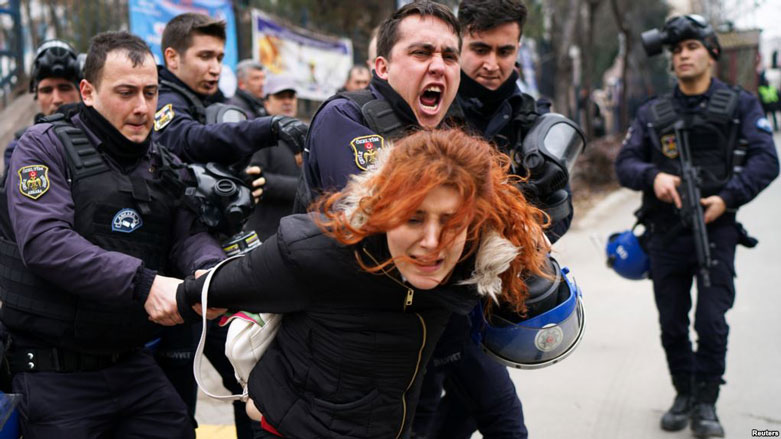Turkey lifts two-year state of emergency

ERBIL (Kurdistan 24) – Turkey lifted a controversial state of emergency on Thursday that has given security services increased powers of arrest and detention for the past two years.
Ankara imposed the measure in the wake of a failed attempt to overthrow President Recep Tayyip Erdogan and his ruling Islamist-rooted Justice and Development Party (AKP) government in July 2016, for which it blames US-based Turkish Islamic cleric Fethullah Gulen and his sympathizers within the army.
As justification for the state of emergency, Ankara also cited guerrilla warfare by the Kurdistan Workers’ Party (PKK) that has lasted decades and began as part of an effort to form self-rule in the nation's Kurdish-majority provinces.
AKP and its far-right nationalist allies in Parliament extended the policy on multiple occasions, the last time in April after Erdogan called for snap general and presidential elections in June from which he emerged the clear victor.
Then Prime Minister Binali Yildirim announced two weeks earlier that the state of emergency would be lifted on July 9 after Erdogan announced his new cabinet, but it was not again publicly addressed until Turkey's Anadolu Agency reported it had ended on Thursday at 1:00 am local time.
Yildirim also said a new decree would be issued after the lifting of the state of emergency "to prevent the struggle against terrorism from weakening," but none has yet been announced.
Parliament is, however, scheduled to discuss new amendments to Turkey's anti-terror law on Thursday that are expected to strengthen police, bureaucracy, and the judiciary in such a way that critics say amounts to making the state of emergency permanent.
In the new governmental system in place, Yildirim's post of Prime Minister has been abolished with President Erdogan now the head of both the state and government, as well as enjoying additional broadened powers that were given to him in a referendum held last year while the state of emergency was in effect.
Opposition Republican People's Party (CHP) and pro-Kurdish Peoples' Democratic Party (HDP) has long argued that Erdogan was using the state of emergency to cripple freedoms and bring additional state institutions, including the judiciary and national police force, within his control.
Under the state of emergency in the past year, Turkey has purged over 100,000 civil servants and ordered the closure of hundreds of media outlets, NGOs, cultural centers, private schools, and hospitals over allegations of having ties to “terrorist” groups the government claims are detrimental to national security.
There are also over 160 journalists and media workers behind bars and former co-leader of the HDP Selahattin Demirtas, one of the rivals of Erdogan in last month's elections, remains jailed along with nine other former lawmakers from his party.
On Wednesday, a Turkish court ruled that Demirtas will remain in prison.
(Ari Khalidi contributed to this report)
